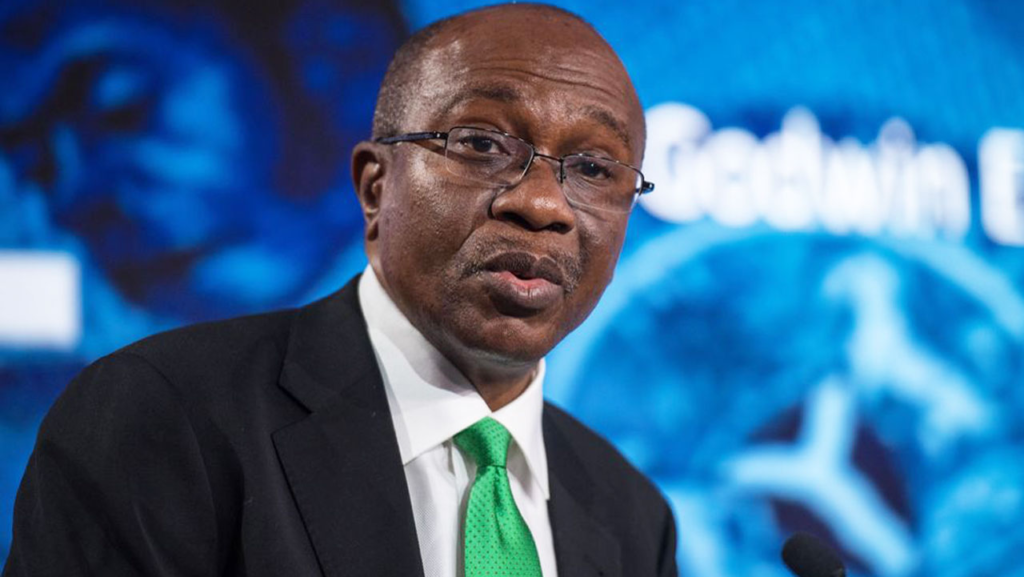
Several constitutional attorneys have applauded the verdict ordering the liberation of the suspended Governor of Central Bank of Nigeria (CBN), Godwin Emefiele, from the captivity of the Department of State Services (DSS), describing it as a triumph for democracy and civil liberties.
The attorneys, in a statement by their leader, Barr. Obe AG, appealed to the federal government to demonstrate respect for the rule of law by complying with the court ruling.
In the same way, the socio-cultural group, Ohanaeze Youths, has implored President Bola Ahmed Tinubu to establish his commitment to democracy by directing the DSS to promptly release Emefiele.
The socio-cultural group, in a statement by its Cordinator for Judicial Affairs, Nze Uzo Kalu, asserted that if the DSS defies the court order and persists in unlawfully detaining Emefiele, then it becomes evident that the DSS intends to tarnish Tinubu’s record of upholding the rule of law.
The group recollected that President Tinubu, in his inaugural address, pledged to govern in accordance with the Nigerian constitution and the rule of law.
The group pointed out that Tinubu specifically promised that respect for the constitution and the rule of law would underpin his economic initiatives.
Cautioning against tarnishing the president’s record, the group urged the DSS to immediately comply with the court order and release Emefiele, adding that the President should ensure the safe return of their compatriot.
Meanwhile, there is widespread celebration in Emefiele’s hometown in Delta State as the news of the court order for his release spreads.
One of the locals, Ogidi Emmanuel J., who responded to the court ruling, described it as a welcomed development, stating that the unjustifiable detention of the suspended CBN governor without evidence of the alleged crime was unjust and contrary to the rule of law.
He lamented that the DSS operatives were becoming increasingly audacious and tyrannical in their conduct, and emphasized that Emefiele’s offense was initiating several policies that have been advantageous to Nigerians.
Recall that a High Court of the Federal Capital Territory (FCT), sitting in Abuja, earlier on Thursday, ordered the DSS to immediately release the suspended Governor of the Central Bank of Nigeria, Godwin Emefiele, from custody.
The presiding judge, Justice Hamza Muazu, issued the order after hearing the arguments of all parties involved.
The secret police had previously stated last month that the suspended CBN Governor was in their custody shortly after his suspension from office. The statement came hours after they initially denied that Emefiele was in their custody.
Emefiele, through his legal representation, had contested his detention by the DSS and the denial of access to his family members and legal counsel.
The counsel, among other things, requested an order setting aside, annulling, and invalidating the arrest and detention of the Applicant (Mr. Godwin Emefiele) as it was deemed illegal and void in light of the existing Orders and Judgment of the Court in Suit No: FCT/HCAGAR/CV/41/2022 delivered by the Honourable Justice M. A. Hassan on December 29, 2022.
He also requested an order nullifying any warrant of arrest or detention or any other order for the detention of the Applicant, obtained or procured by the Respondents (particularly the State Security Service), for the arrest, detention, and/or interrogation of the Applicant (Mr. Godwin Emefiele) in connection with allegations of terrorism financing, fraudulent practices, money laundering, round tripping, threat to national security, etc., from any other Court, during the existence of the Orders.
Justice Hamza Muazu, in his ruling on Thursday in Abuja, observed that even brief detention is a violation of fundamental rights and it must be determined whether the detention is legal or illegal.
He noted that the applicant was entitled to a fair hearing and continued detention cannot be justified in the absence of charges, particularly when the alleged offenses are bailable.
While ruling for the applicant’s release on bail, the Judge granted the respondent one week to either bring charges against the applicant or release him immediately.
